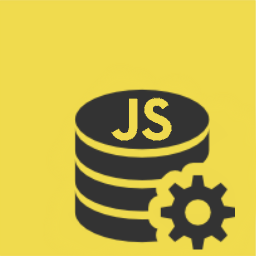Inspired by Ember Data, js-data is the model layer you've been craving. It consists of a convenient framework-agnostic, in-memory cache for managing your data, which uses adapters to communicate with various persistence layers.
You can use the http adapter, which is perfect for communicating with your RESTful backend. You could also use the localStorage adapter. On the server you could hook up to the SQL adapter (Postgres/MySQL/MariaDB/SQLite3) and add in the Redis adapter as a caching layer for your read endpoints. More adapters are coming, and you're free to implement your own. View available adapters.
Unlike Backbone and Ember Models, JSData does not require the use of getters and setters, and doesn't wrap your data with custom classes if you don't want it to. JSData's internal dirty-checking (via observe-js or Object.observe in supporting browsers) allows for powerful use cases and an easy avenue for implementing your own 3-way data-binding.
Supporting relations, computed properties, model lifecycle control and a slew of other features, JSData is the tool for giving your data the respect it deserves.
See Latest Release: JSData Releases
| Project | js-data |
|---|---|
| Tasks | |
| Bower |  |
| NPM |  |
| Build Status |  |
| Code Climate |  |
| Dependency Status |  |
| Coverage |  |
Browsers: Chrome, Firefox, IE 9+, Safari, Opera, iOS Safari 7.1+, Android Browser 2.3+
Node: 0.10+
bower install --save js-data js-data-http or npm install --save js-data js-data-http.
Load js-data-http.js after js-data.js.
var store = new JSData.DS();
// register and use http by default for async operations
store.registerAdapter('http', new DSHttpAdapter(), { default: true });
// simplest model definition
var User = store.defineResource('user');
User.find(1).then(function (user) {
user; // { id: 1, name: 'John' }
});All your data are belong to you...
- Getting Started with js-data
- Resources/Models
- Working with the Data Store
- Adapters
- Model Lifecycle
- Custom Instance Behavior
- Computed Properties
- Relations
- Schemata & Validation
- JSData on the server
- Angular + JSData
- FAQ
- DS
- js-data-schema
- DSFirebaseAdapter
- DSHttpAdapter
- DSLocalForageAdapter
- DSLocalStorageAdapter
- DSMongoDBAdapter
- DSRedisAdapter
- DSRethinkDBAdapter
- DSSqlAdapter
- Mailing List - Ask your questions!
- Issues - Found a bug? Feature request? Submit an issue!
- GitHub - View the source code for JSData.
- Contributing Guide
First, feel free to contact me with questions. Mailing List.
- Contribute to the issue that is the reason you'll be developing in the first place
- Fork js-data
git clone https://github.com/<you>/js-data.gitcd js-data; npm install; bower install;grunt go(builds and starts a watch)- (in another terminal)
grunt karma:dev(runs the Karma tests) - (in another terminal)
grunt w(runs the NodeJS tests) - Write your code, including relevant documentation and tests
- Submit a PR and we'll review
The MIT License (MIT)
Copyright (c) 2014-2015 Jason Dobry
Permission is hereby granted, free of charge, to any person obtaining a copy of this software and associated documentation files (the "Software"), to deal in the Software without restriction, including without limitation the rights to use, copy, modify, merge, publish, distribute, sublicense, and/or sell copies of the Software, and to permit persons to whom the Software is furnished to do so, subject to the following conditions:
The above copyright notice and this permission notice shall be included in all copies or substantial portions of the Software.
THE SOFTWARE IS PROVIDED "AS IS", WITHOUT WARRANTY OF ANY KIND, EXPRESS OR IMPLIED, INCLUDING BUT NOT LIMITED TO THE WARRANTIES OF MERCHANTABILITY, FITNESS FOR A PARTICULAR PURPOSE AND NONINFRINGEMENT. IN NO EVENT SHALL THE AUTHORS OR COPYRIGHT HOLDERS BE LIABLE FOR ANY CLAIM, DAMAGES OR OTHER LIABILITY, WHETHER IN AN ACTION OF CONTRACT, TORT OR OTHERWISE, ARISING FROM, OUT OF OR IN CONNECTION WITH THE SOFTWARE OR THE USE OR OTHER DEALINGS IN THE SOFTWARE.
